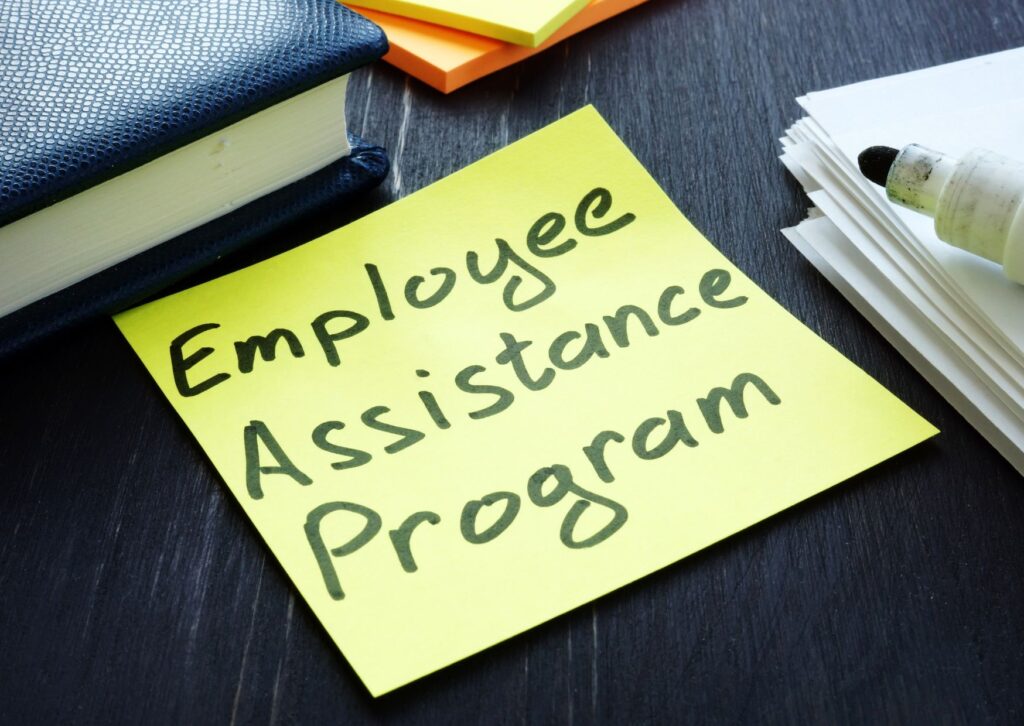10 Nurturing Ways to Support Graduate Employees
Are you looking to create a nurturing and supportive environment for your graduate employees?
Look no further!
In this blog, we’ll explore 10 easy-to-implement strategies that will help new hires feel valued, confident, and equipped to succeed in their roles.
With a focus on personal growth, work-life balance, and skill development, these tips will not only foster a positive work culture but also boost your organisation’s overall productivity and success.
Contents
Why is Supporting Graduates in Their New Job Role Important?
How Can You Attract Graduates to New Job Roles?
10 Nurturing Ways to Support Graduate Employees

Why is Supporting Graduates in Their New Job Role Important?
Supporting graduates in their job role is essential for several reasons. First, it eases their transition from academia to the workforce. This shift can be challenging, and guidance helps them adapt quickly.
Second, support boosts their confidence. New graduates often face self-doubt, and reassurance from colleagues and supervisors fosters self-belief.
Third, it enhances skill development. Graduates bring fresh perspectives and unique talents, but they need opportunities to refine these skills further.
Fourth, it encourages retention. When graduates feel valued and supported, they are more likely to stay and contribute to the organisation’s long-term success.
Lastly, it creates a positive work environment. When everyone, including graduates, feels supported, it fosters a culture of teamwork, collaboration, and growth.
How Can You Attract Graduates to New Job Roles?
Attracting graduates to new job roles involves several strategies. First, offer competitive salaries. Graduates seek fair compensation, so ensure your offerings are in line with industry standards.
Next, emphasise opportunities for growth and development. Graduates are eager to learn and expand their skills. By showcasing training programs and advancement possibilities, you can appeal to their ambitions.
Create a strong employer brand by promoting your company’s culture, values, and mission. A positive work environment with a clear vision will attract graduates who resonate with your organisation’s ethos.
Offer internships or co-op programs, which provide students with hands-on experience. These opportunities often lead to full-time positions, creating a pipeline of talented graduates.
Leverage social media and online platforms to connect with potential candidates. Use LinkedIn, job boards, and university career centers to reach graduates where they are most active.
Lastly, attend career fairs and networking events at universities. By engaging directly with students and showcasing your company, you can build relationships and pique their interest in your job roles.

10 Nurturing Ways to Support Graduate Employees
1. Wellbeing Workshops
Using wellbeing workshops is an effective way to support graduates as they transition into their new roles.
These workshops provide a nurturing environment for young professionals to learn essential life skills.
Wellbeing Workshops can help graduates set goals, build confidence, create positive habits, and look after their health and wellbeing.
Moreover, these workshops can be tailored to the specific needs and challenges faced by graduates, making them even more relevant and impactful.
By participating in such programs, graduates will feel more equipped to manage their personal and professional lives, ultimately leading to greater job satisfaction and performance.

2. Mentorship Programs
Establishing mentorship programs for graduate employees is another nurturing way to support their growth.
By pairing new graduates with experienced professionals, they can gain valuable insights and guidance from someone who has already navigated the challenges they may face.
This one-on-one relationship fosters a sense of belonging and provides a safe space for graduates to ask questions, share concerns, and receive personalised feedback.
Over time, this support can lead to increased confidence, better decision-making, and improved job performance.
3. Flexibility and Work-Life Balance
Offering flexible work arrangements and promoting a healthy work-life balance can significantly contribute to a graduate employee’s wellbeing.
Allowing them to choose flexible hours or work remotely can reduce stress and help them maintain a better balance between their personal and professional lives.
By demonstrating a commitment to their overall happiness, organisations can create an environment where graduate employees feel valued and more likely to stay with the company long term.
4. Regular Feedback and Performance Reviews
Providing frequent feedback and performance reviews can help graduate employees understand their strengths, identify areas for improvement, and set achievable goals.
By openly discussing their progress and offering constructive criticism, managers can guide them toward success and build their confidence.
Regular communication also allows for the early identification of any potential issues, enabling timely support and intervention when needed.
5. Opportunities for Skill Development
Supporting graduate employees in developing their skills and knowledge is crucial for their career growth.
Offering training sessions, workshops, or sponsoring relevant courses can help them acquire new competencies and stay up-to-date in their field.
By investing in their professional development, organisations can demonstrate their commitment to the success of their graduate employees, ultimately resulting in increased loyalty and productivity.
6. Inclusive Company Culture
Fostering an inclusive company culture is essential for the wellbeing of graduate employees, as it significantly impacts job satisfaction and performance.
Organisations can promote diversity and inclusion by embracing employees from various backgrounds, implementing unbiased hiring practices, and providing sensitivity and unconscious bias training for all staff.
Establishing internal support groups or employee resource groups (ERGs) for underrepresented communities can offer safe spaces for connection and support.
Encouraging open communication channels, where employees can voice opinions and concerns without fear, is vital.
Involving team members in decision-making processes, particularly regarding company culture and policies, can lead to more inclusive outcomes.
Finally, celebrating and acknowledging cultural events, holidays, and traditions from diverse backgrounds can foster understanding, respect, and appreciation within the organisation.
By actively nurturing an inclusive company culture, organisations create a sense of belonging for graduate employees and a supportive working environment that encourages open communication, collaboration, and stronger team dynamics.
7. Recognition and Rewards
Celebrating the accomplishments and efforts of graduate employees is vital for maintaining high morale and motivation. There are several ways organisations can express their gratitude and encourage continued excellence.
First, verbal recognition from supervisors or peers during team meetings can make a significant impact. Publicly acknowledging the graduate’s achievements can boost their self-esteem and foster a sense of pride in their work.
Second, offering written praise in the form of positive performance evaluations or personalised thank-you notes can serve as a lasting reminder of their success. This tangible form of recognition can be particularly motivating, as it can be referred back to in times of self-doubt.
Third, implementing a formal rewards program that honours top performers with certificates, plaques, or trophies can create healthy competition and incentivise ongoing effort.
In addition, offering monetary rewards, such as bonuses or gift cards, can further demonstrate the organisation’s appreciation for their hard work.
Fourth, providing opportunities for career advancement, such as promotions or increased responsibilities, can serve as a long-term reward for exceptional performance. This not only recognises the graduate’s accomplishments but also enables them to grow professionally within the organisation.
Finally, hosting celebratory events or team outings to commemorate milestones or significant achievements can foster camaraderie and a sense of belonging.
These gatherings can help build stronger relationships among colleagues, leading to a more supportive and nurturing work environment.

Encouraging Networking and Socialisation
Facilitating opportunities for graduate employees to network and socialise with their peers and colleagues is essential in helping them feel more connected and engaged in the workplace.
By organising various events and activities, companies can foster a sense of camaraderie, teamwork, and belonging among employees.
Team-building activities, such as workshops or collaborative problem-solving exercises, can help graduates develop essential soft skills like communication, leadership, and adaptability.
These activities also allow them to understand their colleagues’ strengths and working styles, leading to improved collaboration and efficiency.
Informal gatherings, such as after-work socials, lunches, or company-sponsored outings, provide relaxed environments for employees to build rapport and form genuine connections with their colleagues.
This can lead to stronger support networks, improved morale, and increased job satisfaction.
Networking events, both internal and external, can expose graduates to new ideas, perspectives, and professional contacts.
By attending industry conferences, workshops, or seminars, they can enhance their knowledge, stay up-to-date with trends, and discover potential career development opportunities.
By emphasising networking and socialisation, companies can create a supportive and interconnected work environment where graduate employees feel valued, motivated, and eager to contribute to the organisation’s success.

9. Supportive Management
Effective managers play a pivotal role in the wellbeing and success of graduate employees.
By fostering a supportive environment, managers can contribute significantly to the overall job satisfaction and professional growth of new hires. To achieve this, several key qualities and practices should be emphasised.
Approachability is essential, as it encourages open communication between managers and graduate employees. Managers should be available and willing to listen, making themselves accessible for discussions and questions.
Empathy is another crucial trait, enabling managers to understand and validate the feelings and perspectives of their graduate employees.
By acknowledging their struggles, managers can help new hires feel heard and valued.
Genuine interest in the personal and professional growth of graduate employees is also vital. Managers should actively work with new hires to identify their goals, strengths, and areas for improvement, providing guidance and resources to help them succeed.
Regular check-ins and one-on-one meetings can help managers stay informed about their graduate employees’ progress and challenges, enabling them to offer timely support and advice.
Constructive feedback, delivered with sensitivity and respect, can help graduates learn from their mistakes and continuously improve in their roles.
Managers should also celebrate successes and acknowledge achievements, fostering a sense of accomplishment and motivation.
By embodying these qualities and practices, managers can create a supportive environment where graduate employees feel comfortable discussing their challenges, seeking guidance, and ultimately, thriving in their roles.
10. Employee Assistance Programs
Employee Assistance Programs (EAPs) offer extra support for graduate employees. EAPs help with personal and work-related issues, improving job performance and overall wellbeing.
Confidential counselling services cover stress, anxiety, depression, relationships, and addiction. Available 24/7, employees can get help anytime they need it.
EAPs also provide resources on financial planning, time management, and conflict resolution. These tools help employees make informed decisions and cope with challenges.
Referral services connect graduates to specialised support like therapists, support groups, or legal advisors when needed.
By providing EAPs, companies show commitment to their graduates’ wellbeing, creating a supportive environment where employees can thrive.

Nurturing and supporting your graduate employees is crucial for their success, as well as the overall health of your organisation.
By implementing these 10 strategies, you can create an inclusive and growth-oriented environment that fosters both personal and professional development.
Remember, when you invest in your graduate employees’ wellbeing, confidence, and skills, you’re not only helping them thrive but also contributing to the long-term success of your organisation.
So, take the first step today and start making a positive impact on the lives of your valued graduate employees.
FAQs
Why is Supporting Graduates in Their New Job Role Important?
Supporting graduates eases their transition from academia, boosts confidence, enhances skill development, encourages retention, and fosters a positive work environment.
How Can You Attract Graduates to New Job Roles?
Attract graduates by offering competitive salaries, growth opportunities, promoting company culture, offering internships, leveraging online platforms, and attending university events.
Author
Tyler Lowe – Health & Wellbeing Speaker
BSc Sport & Exercise Rehabilitation


